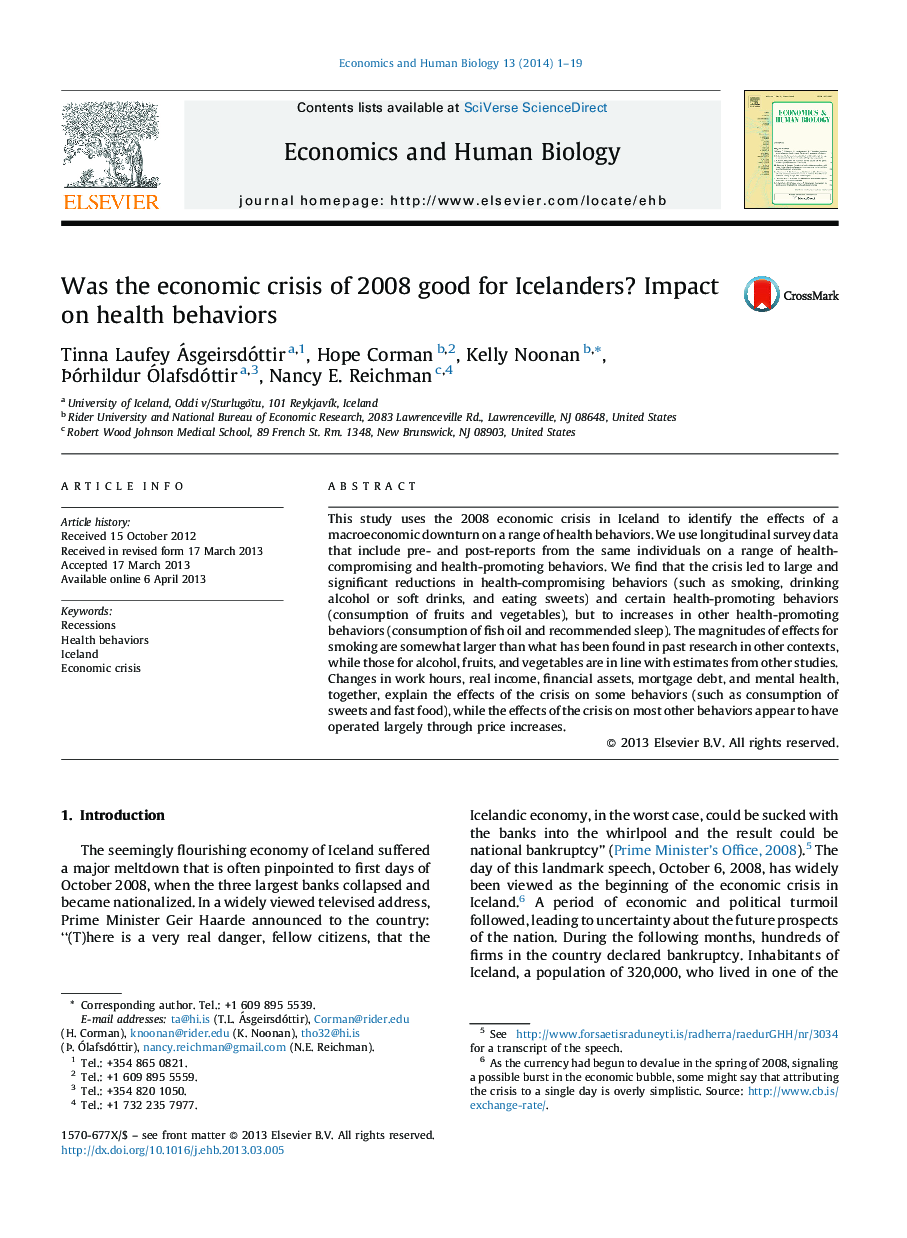| کد مقاله | کد نشریه | سال انتشار | مقاله انگلیسی | نسخه تمام متن |
|---|---|---|---|---|
| 5057062 | 1476566 | 2014 | 19 صفحه PDF | دانلود رایگان |
- The 2008 economic crisis in Iceland led to reductions in smoking, heavy drinking, soft drinks, sweets, and indoor tanning.
- The crisis led to increases in fish oil and recommended sleep but decreases in fruits and vegetables.
- The effects on most behaviors appeared to operate through price increases rather than changes in individual circumstances.
This study uses the 2008 economic crisis in Iceland to identify the effects of a macroeconomic downturn on a range of health behaviors. We use longitudinal survey data that include pre- and post-reports from the same individuals on a range of health-compromising and health-promoting behaviors. We find that the crisis led to large and significant reductions in health-compromising behaviors (such as smoking, drinking alcohol or soft drinks, and eating sweets) and certain health-promoting behaviors (consumption of fruits and vegetables), but to increases in other health-promoting behaviors (consumption of fish oil and recommended sleep). The magnitudes of effects for smoking are somewhat larger than what has been found in past research in other contexts, while those for alcohol, fruits, and vegetables are in line with estimates from other studies. Changes in work hours, real income, financial assets, mortgage debt, and mental health, together, explain the effects of the crisis on some behaviors (such as consumption of sweets and fast food), while the effects of the crisis on most other behaviors appear to have operated largely through price increases.
Journal: Economics & Human Biology - Volume 13, March 2014, Pages 1-19
